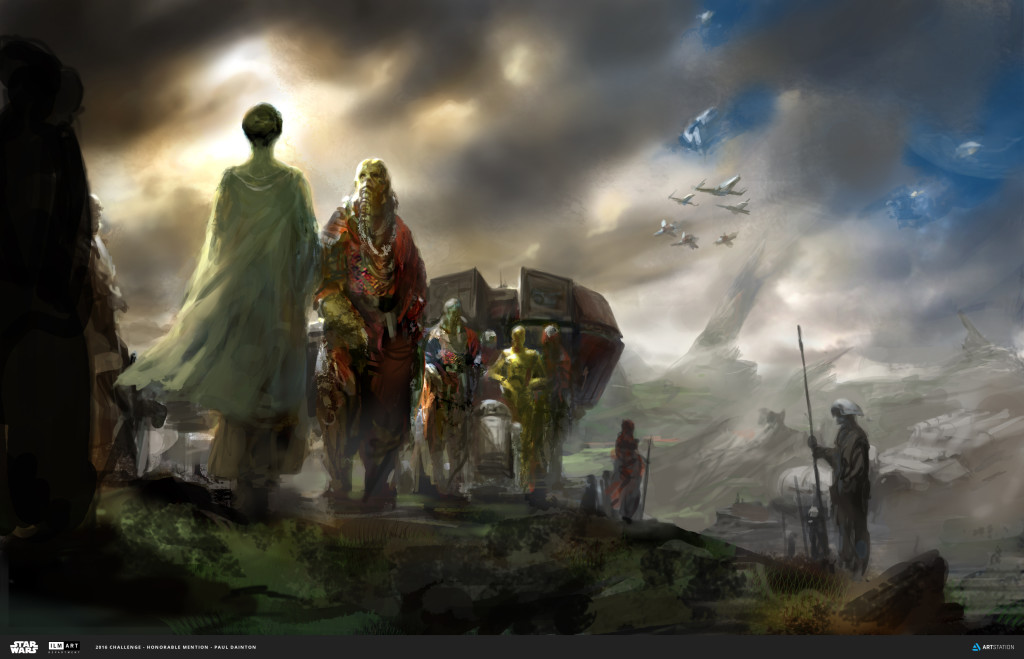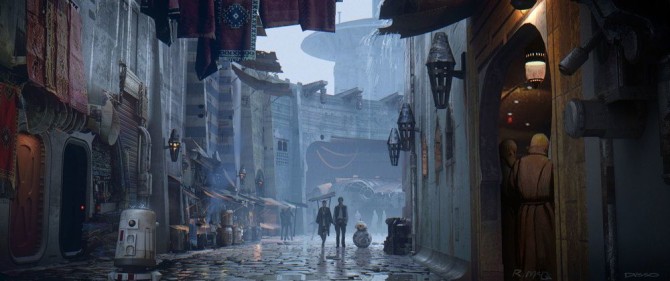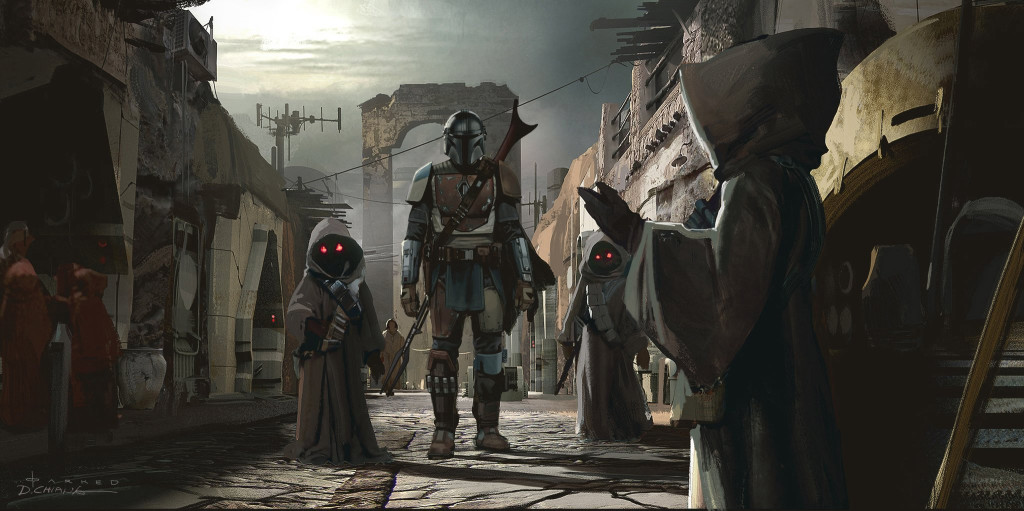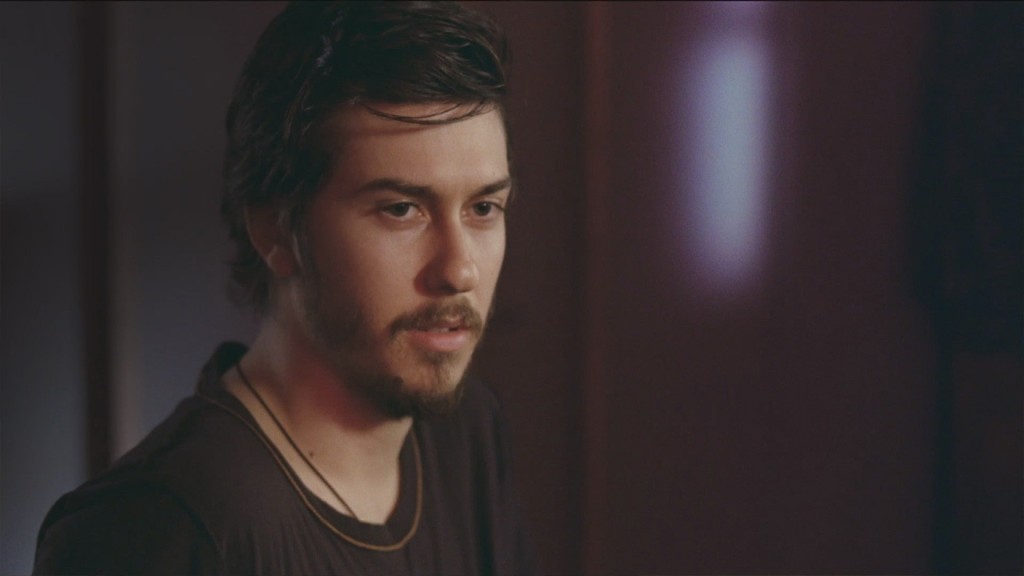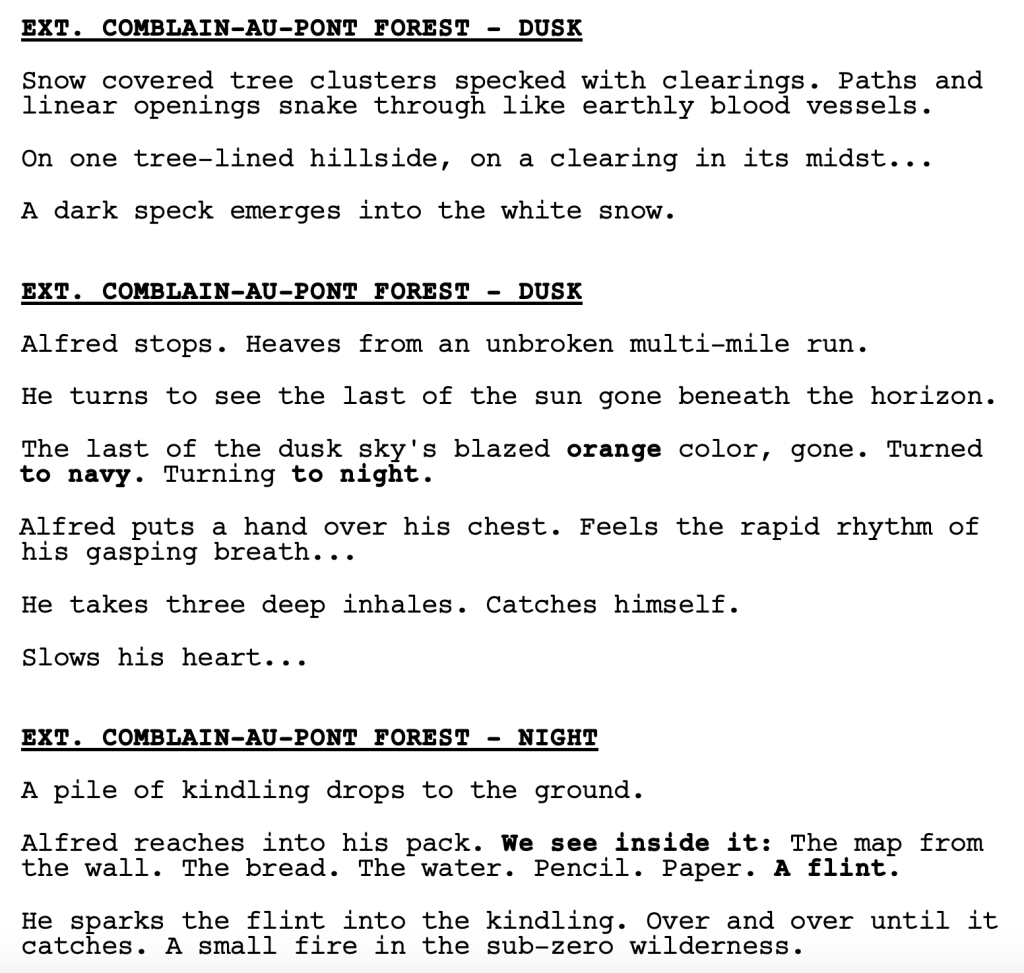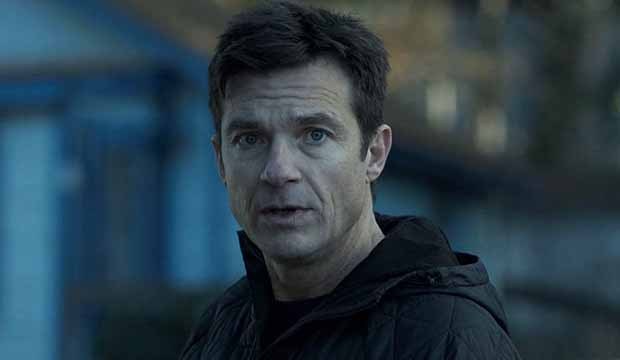With all this free time in quarantine, I’ve been thinking a lot about Star Wars. I recently ran into a “video essay” – I guess these are a thing now – about what was wrong with the new Star Wars trilogy. One of the easiest things in this world is to do, by the way, is tear something down. And if there’s a list that ranks “takedownable things,” from easiest to hardest, Star Wars sequels and prequels would be near the top. It takes no brain power to say, “Rose was dumb.” “Rey was a Mary Sue.” “Luke was too cranky.” (all things I’ve said by the way – oops!)
Where you catch all these “video essayists” is when they start offering their own solutions to the Star Wars universe. When they’re forced to create instead of destroy, the Emperor has no clothes. One of this guy’s suggestions for fixing The Force Awakens was to evolve Han Solo instead of making him so similar to Young Han Solo. For example, he said, instead of going into Maz Kanata’s bar with Rey, Han should’ve said he was too tired to walk that far. Yes, because we all saw how well, “I’m getting too old for this” lines worked for Indiana Jones in the Kingdom of the Crystal Skull.
Star Wars is in no different of a position than any other idea. IT’S HARDER TO TELL GOOD STORIES THAN IT LOOKS. We all know that. That’s what this site is about. It’s about dissecting storytelling in a way that gives us the best possibility of writing something good. It’s not that Star Wars is out of ideas. Gimme a break. Star Wars is still one of the coolest most expansive properties out there. But you’re not going to come up with six good hours of Star Wars movies writing a script on the fly for three months. Which is what happened when JJ and and Lawrence Kasdan ditched the originally planned sequel scripts and wrote their own.
In that respect, a failed trilogy may be the best thing that could’ve happened to Star Wars. Throw in a pandemic and, all of a sudden, we don’t have a Star Wars movie on the schedule until 2023. That means you have a good year to write a great Star Wars movie and a proper outline for the second and third films in a new trilogy.
Where this story is going to come from, however, is still a mystery. Star Wars has put a lot of time and money into something called Project Luminous, which revealed itself, this year, to be “The High Republic.” The High Republic is a time period 200-400 years before the prequels when the Jedi were at their strongest. The era is supposed to focus on something called “The Great Disaster,” which threw the galaxy into disarray, forcing the Jedis to go out on a bunch of missions to get things back in order.
The High Republic plan is to start all stories out in written and comic-book form. Head of Lucasfilm, Kathleen Kennedy, has been on record saying the problem with trying to make a bunch of Star Wars movies is that Star Wars doesn’t have well-known superheroes who have had 80 years worth of written work behind them, like Marvel. This is her solution to remedy that. Write a bunch of High Republic novels and comic books and see what people gravitate to. The big winners and story ideas will get movie treatments.
There are a couple of things wrong with this approach. First, you’re still going to run into prequel-itis problems. Prequel-itis problems are when you have to limit your creative options due to already established canon. Lucas had to engage in a years-long mental gymnastic obstacle course trying to figure out how to keep Obi-Wan Kenobi away from R2-D2 and C-3PO since, in the original Star Wars movie, Obi-Wan Kenobi has no idea who R2-D2 and C-3PO are.
Going back 400 years keeps you away from plot problems like that. But it doesn’t keep you away from other limitations, such as the fact that there can never be anything during that time that’s more dangerous than the Death Star. And if every threat is smaller than something we’ve already experienced, how big are the stakes going to feel? Also, you can’t introduce any cool new Jedi things because then, why wouldn’t those things still be in play in the later films?
As much as I dislike Rian Johnson’s Star Wars movie, he had the right idea. For his canceled Star Wars trilogy, he wanted to go to some other part of the galaxy or maybe even another galaxy entirely so that he wasn’t beholden to any of this stuff. To truly get the most out of Star Wars, you need to take the handcuffs off. And whatever you do in the past is going to be restricted by the big looming chunks of story in the later Star Wars films.
The other problem is that people don’t care about Star Wars novels and comic books. I know there’s a hardcore sliver of superfans who do. But even major Star Wars fans like myself don’t read those things. They’re all clumsy and goofy and feel like fan fiction. So I don’t know how you’re going to judge whether a novel is “good enough” to make a movie out of. Is the criteria going to be whether the Bantha Lube Podcast gives it five out of five parcec tokens?
Complicating this is that Kennedy has given people like Kevin Feige and Taika Waititi, and even J.D. Dillard if you believe the rumors, Star Wars movies, with no indication of whether they’re going to be directing movies in this new “High Republic” era or they’re going to be doing their own things. Logic would imply they’re one-offs. Or one-offs with trilogy potential. Cause when you want the big names in the business, the price you pay is releasing creative freedom over to them. They get to do their own movie. And if you allow these guys to make whatever movies they want, aren’t you right back where you started? JJ Abrams telling you he doesn’t want to direct the George Lucas conceived idea for Episode 7 and he’s going to do his own thing, thank you very much?
Ever since Disney acquired Lucasfilm, there have been two legit good choices. The first was Rogue One. Saw Gerrera’s mysterious changing hairstyles or not, that idea is still one of the best Star Wars ideas they’ve had. And then The Mandalorian. I can pontificate all evening on the things in that show that drive me bonkers, but Baby Yoda was a genius move. And maybe, just maybe, bringing back Boba Fett in the second season will get me watching again.
So what does this teach us?
Funny enough, it teaches us the same thing screenwriting books have been telling us for years. Give us something familiar, but make it different enough that it feels fresh. Rogue One gave us taking down the Death Star, but with all new characters. The Mandalorian gave us someone who looked like beloved Star Wars bounty hunter Boba Fett, but he’s a completely different character. It gave us one of the best movie characters in history, but in baby form.
In addition to giving us the same but different, Star Wars needs to reintroduce something that’s been forgotten over the years. They need to make Star Wars mysterious again. That’s the one ingredient I never hear anyone talk about and it was one of the most important ingredients in making the original so beloved. Everything from the Force to lightsabers to the Death Star to someone named Jabba the Hut Han Solo owed money to. There was this mystery behind them that made us want to learn more.
To that end, Star Wars should bring in George Lucas’s idea of the Whills – this idea that there’s something bigger than the Force out there. That there are beings more powerful than Jedi. This is a great starting point to reintroduce mystery into the series again.
I admit it’s not going to solve every problem. You still need to create great characters. And as we’ve seen with all the new Star Wars movies, this remains their Achilles heel. It just goes to show how much of a genius George Lucas was in that he somehow created a dozen iconic characters in a single movie when most writers are lucky to create a single iconic character in their entire career.
These next few years are going to be interesting. Sooner or later, they’re going to have to officially announce a movie because these movies take time and 2023 comes at you a lot faster when you’re a Star Wars production. But I personally can’t wait. I’ve learned to love the drama behind this franchise almost as much as I enjoy the franchise itself. And at least it sounds like I’m getting a Taika Waititi Star Wars movie. JoJo Rabbit is one of the best movies of the decade for me. So that alone will put a smile on my face. As for everything else, we’ll just have to wait and see. :)
Guys, it was not a good contest entry week.
Barely any scripts got into the top 2 piles.
One of the biggest factors on whether a script advances in my contest or not is if there’s a dramatically compelling situation in the first ten pages. That means there’s a problem and characters need to resolve it. The more interesting the characters and the more unique and powerful the situation, the better.
Yet very few writers do this. Monday, I read a script about the restaurant business. The restaurant business is one of the most emotionally charged businesses out there. There is so much opportunity for conflict and drama. But all the first ten pages did was set up that the restaurant was struggling. Set up the sale of the restaurant. Then introduce a bunch of characters in non-dramatic situations.
WHERE IS THE DRAMA????
You need to include dramitized situations – problems, dangers, mysteries, conflicts – to keep readers invested. If all you’re doing is saying, “Here’s relevant story point A.” “Here’s relevant story point B.” “Here are characters C, D, and E.” “Here’s a location.” “Character D moves from this location to this location.” That’s not storytelling. That’s a screenplay grocery list. Anybody can lay down ten story variables. Writing is when you take those variables and create DRAMATIC SITUATIONS.
Look at the pilot episode of Succession. It starts with a 60 second teaser of a rich confused old man waking up and going to the bathroom on the floor. Immediately, we’re curious. What was that all about? But even if you’re not curious, it’s a 60 second scene. We’re moving on. We cut to his son, the successor to this man’s billion dollar business, as he tries to close a deal with a hot tech company that doesn’t want to be bought.
This is an important moment for the son. He needs to prove that he can handle the daily high-pressure environment of this position. However, in front of a conference room of all his guys and all their guys, no matter what he offers this pesky CEO, the guy keeps saying no. We can see our character’s confidence slipping. This was supposed to be easy. Yet it’s falling apart. Even worse, it’s happening in front of the whole company. They’re seeing him fail.
It doesn’t matter if you like this scene or not. You can be the biggest Succession hater in the world. But what you can’t argue is that this isn’t a highly dramatized situation. We have a problem. Our hero needs to buy a company that doesn’t want to be bought. The stakes are high. If he fails, it could cost him the position of company successor. There is drama and conflict and tension playing out in a major way.
To highlight how strong this opening is, let’s rewrite it from the perspective of a bad writer. Same concept. Same general characters. This time, however, instead of the opening 1-minute teaser where the old man embarrassingly pees on the floor, the writer wants an entire 4-minute breakfast scene with the old man. This way, we can hear him talk. We can get to know him. Get some exposition in about what he does. It’s going to be great! Audiences are going to know this character so well after this breakfast!
Then, it’s time to set up the son. What? A high stakes conference room deal? Why would I write that? We don’t even know this guy yet. Let’s show him getting a spray tan first. That way, the audience will know he’s vain. Ooh, now that’s good writing! Afterwards, I’ll have him call his dad. Yes! That way we can establish that they’re father and son and I can set up their frayed relationship and maybe even slip in some stuff about the family dynamic. Exposition taken care of! Wooo!
You know what I forgot to do? Set up the sister. So we should do a scene with her. Yeah, I’ll have her on the phone closing a deal for a new house she’s buying. That will show that she gets things done. Things are happening in my story! My characters are buying houses! Okay, where are we at? About ten pages into the story? Okay, the son should be getting to work now. I can show him heading upstairs, talking to everyone, and that way we can show that nobody really respects him. Man, I’m good at writing.
What’s so bad about this altered Succession pilot opening? Truthfully, it’s fine. Things are kind of happening. We’re getting to know people. We’re learning about the world of the super-rich. Here’s the problem, though. FINE ISN’T GOOD ENOUGH. If I read 10 contest entries, 5 of them will be “fine.” And every one of them will go into the “no” pile. Because I’m not interested in “fine.” I’m interested in “very good.” In “great.” In “compelling.” In “suspenseful.” In “exciting.” In “creative.”
Nothing in that altered Succession pilot was dramatized. It was ALL SETUP. It was ALL INFORMATION. Here’s this character. Here’s that character. Here’s how they know each other. Here’s some extra info about this character so you know them even better. It’s resume shit. I’m not reading scripts to get a resume on relevant story information. I’m reading to be entertained. And unless you’re creating a series of dramatized situations, you’re not entertaining me.
When is it okay NOT to write a dramatized situation? I’m tempted to say never to force you guys to always think in terms of dramatizing scenes. But, the truth is, you can use sequences (sequences are a series of scenes) to BUILD UP to a dramatized situation. “Building” is harder than dramatizing because you’re writing a series of scenes that are “technically” not that entertaining on their own, but which are hinting at, implying, or straight up telling us that the bigger juicier dramatized scenario is coming. You’re sort of using your scenes to tease. Which is better than straight setup because, again, the only thing straight setup is doing is providing information. It’s not providing the reader any entertainment value.
Take Palm Springs, the former ‘time-loop’ Black List script that went on to become the highest selling movie ever at Sundance (and which can now be seen on Hulu). There isn’t a whole lot of dramatizing in the first 15 minutes. Our hero, Nyles, wakes up in a Palm Springs hotel with his annoying girlfriend who we find out are attending a wedding. We then show the wedding and meet a girl that Jake is interested in.
However, there’s a clear sense that something is off here. Jake seems oddly detached from his girlfriend. Then, at the wedding, he gives a lights out toast despite knowing nothing about the bride or groom. He’s able to move through wild dancing crowds with Matrix-like precision. And he doesn’t give a shit about anything. As a reader, you get a sense that we’re building towards something – an explanation as to what’s going on with Nyles. And we finally get it at the 15 page mark. Nyles is attacked by a strange man with a bow-and-arrow, barely escapes him, then wakes up at the beginning of the day again. You’ve provided us with enough curious moments to build towards an explanation. Now you can start dramatizing things.
You should write a dramatized situation in your first ten pages for sure. From there, try to dramatize as much of your script as possible. And if you’re not dramatizing, you should be clearly building towards an impending dramatized situation soon. Cause if you’re not dramatizing and you’re not building, you’re just conveying information. You’re explaining characters and locations and relevant story info to the reader. We’re bored when you do that.
And yes, just like all screenwriting advice, there are exceptions. If you’ve created two lights out amazing characters, sure, we might just want to hang out with them and listen to them talk. Arguably, When Harry Met Sally, one of the best movies ever, did this. But you probably shouldn’t assume that you’re writing two iconic movie characters in your script. Just in case you haven’t, dramatize dramatize dramatize.
If you have questions about this, ask me in the comments and I’ll try to answer. Cause clearly, a lot of writers aren’t getting this even though I talk about it all the time on the site. In fact, there’s a writer who sent in an entry who’s been on these boards before. And this writer was always one of the first commenters to tear down any script that got a good review on the site. Knowing how high their bar was, my expectations were sky high when I saw their name. And what do you know, they didn’t even make the “Low Maybe” pile. The pages were fine. But the lone attempt at a dramatic situation was so bland and so low-stakes, I wondered why they would think anyone would be interested in continuing to read their story.
I don’t understand why writers aren’t holding themselves to higher standards. People get bored SOOOO FAST these days. A reader can get bored within 30 seconds. I know you can’t make every single second of your script level-10 entertaining. But you should at least make your first ten pages highly entertaining. A high stakes dramatized situation isn’t that difficult to come up with. And it’s one of the easiest ways to pull a reader in.
With the arrival of today’s spec, we must ask the question, is the real-time war film going to become its own genre??
Genre: Action/War
Premise: Near the tail end of World War 2, an American POW escapes certain death at a concentration camp and makes a run for the southern Allied border, but is pursued by a determined Nazi soldier.
About: Today’s screenplay comes from an interesting writer named Henry Dunham. You might recognize the name because I reviewed a previous script of his called, “Militia,” which was a clever take on the contained thriller genre where a rural militia are forced into a local warehouse to figure out who’s responsible for a rapidly growing series of domestic terrorist attacks. The film was too dark for most to handle but I never forgot the writer. Well, he’s back and he’s teamed up with Thunder Road, who are responsible for John Wick, Sicario, and The Town. It looks like Dunham will be directing his script as well.
Writer: Henry Dunham
Details: 96 pages
This is one of the best sub-genres to get into right now. The fast-paced (or high-concept) simplistic major war sub-genre. We just saw this with 1917. We saw it with Black List script, “Helldiver,” about American and Japanese war pilots stuck in the middle of the ocean on one of their shot down planes. We saw it with the number one Black List script of 2017, Ruin, about a former SS Captain and a Jewish woman who travel through war-torn Germany to find and kill a Nazi officer.
Not many possess the skill required to create rich nuanced screenplays about complicated wars. But that’s okay. You can still come up with a simple easy-to-understand concept that plays within World War 1 or World War 2 and knock our socks off. And that’s what we get today.
It’s winter. American soldier Alfred Bergen is in some sort of Danish concentration camp near the end of World War 2. When we meet him, he’s being rounded up with the rest of his POWs by a hurried German army. They’re ditching this camp, and therefore everyone needs to be killed. They take the Americans, line them up, and shoot them all dead.
Alfred wakes up in a mass grave. He survived somehow. And, as luck would have it, the Germans are gone. So he squeezes out, grabs some food in one of the buildings, and finds a map on the wall. 50 miles down is the Allied line, in Luxembourg. If he can get there, he’s golden.
But first Alfred must grab warmer clothes and dog tags from his dead friends. While he’s doing this, new Germans roll up. Alfred makes a run for it into the endless Southern forest, but a perceptive Nazi soldier named Otto Ziegler notices the footsteps in the snow and goes after him. Alfred has a few hours head start but Otto has a horse.
Alfred survives the night but then runs into another German unit. Germans in front, Germans behind! Alfred discovers a nearby clearing where an Allied unit has been slaughtered. So he sneaks over and plays dead amongst the soldiers. Except there’s a problem. The clearing isn’t land. It’s a frozen over lake. So when Otto discovers him and starts shooting, it’s cracking the ice. Alfred goes under, swims underneath the ice to the southern shore, and is back on the run.
He eventually makes it to a farm where a young Danish woman is living. She doesn’t believe he’s who he says he is and tells him to leave. He explains if he does that, the evil Nazi following him will surely come here and kill her for aiding him. Their only shot at surviving is to stand their ground in the house and kill Otto. So they prep. Otto will be here soon and they need to be ready. Little do they know, this mano a mano battle is far from over.
So here’s the thing.
When you’re writing something that’s action based – something that doesn’t have a lot of dialogue, you need to write in a stripped-down minimal format that’s as fast to read as possible. The reason for this is that readers like dialogue. Why do they like dialogue? Cause they’re big fans of the artistry of conversation? No. Because dialogue reads three times as fast as action.
So when all you have is action, the read is much longer. Which means the reader hates you. Not literally but kind of, yes, they do. Your script might be your baby but to them it’s time taken. You are taking time from them. Readers are fine with this when you respect their time. But if you try and write some all action all description script and don’t keep the action lines short, the reader will want to kill you.
I don’t think there’s a single paragraph in “Perdition” that’s over two lines. And while that might seem like overkill, that’s how you should be thinking when you have minimal dialogue.
Speaking of dialogue, our first scene with dialogue doesn’t happen until page 35. It took me a moment to figure it out but I realized that this scene was pulling double-duty. It wasn’t just providing a conflict-filled scenario between our hero and a skeptical home-owner. It was answering a few big questions we had.
The first one was why Alfred was so obsessed with these freaking dog-tags he was carrying around. You’d think they were newborn puppies he was so protective of them. The second was why the heck is this man chasing you? Doesn’t he have better things to do than follow a random American trying to find safety?
I bring this up because this is one of the most common challenges you’ll face in screenwriting. You’re trying to make a scene look like it’s only there for entertainment value when, in reality, you’re using it to slip in relevant exposition. The writers who do the latter but make it look like the former are the ones who are usually the most successful.
Luckily for Dunham, this is a naturally entertaining scenario. You’ve just snuck into someone’s house. They found you. They have a gun trained on you. They know they must doubt everything in order to survive. So when the woman, Louise, starts interrogating him, it’s only natural that she asks him the same questions we’ve been wanting answers for. Why the heck do you care about a bunch of pieces of metal? Why would some psychopathic soldier follow you all the way across the country? Hence, we don’t realize that exposition is being given. But that’s the catch. You need to create scenarios that hide exposition within entertainment. As long as we’re more focused on the tension or the intrigue of the moment, we won’t catch your sleight-of-hand exposition drops.
So what rating do I give this script?
I believe when a script poses a premise to the audience, it must deliver on two promises. The first one is to deliver on the promise of the premise. If you tell us your movie is about dinosaurs on an island, don’t give us a political story about land rights.
The second promise is to deliver something above and beyond what we expect. If you only give us what we’ve imagined in our heads, why did we need you? We could’ve imagined that ourselves. A professional writer must go above and beyond the call to give us MORE. More could mean a major plot twist we weren’t expecting or it could mean amazing characters that were authentic and interesting and made us feel something.
“Perdition” definitely delivered on the first. And it just barely delivered on the second. There were enough strong moments that I found myself excitedly turning the pages. I loved, for example, that our hero finds safety in a sea of dead soldiers. But that the safety is an illusion. He’s on a frozen lake. And with every gun shot that comes his way, that ice is cracking. Stuff like that put this over the ‘worth the read’ edge for me into ‘double’ territory.
I also like that the ending here is NOT what you’d expect at all. AT ALL. Yet it’s somehow immensely satisfying. I don’t want to spoil it but it’s got “movie moment” written all over it.
I could see this being marketed as the WW2 version of 1917 and making a lot of money.
[ ] What the hell did I just read?
[ ] wasn’t for me
[xx] worth the read
[ ] impressive
[ ] genius
What I learned: We had three different stories this week. A horror movie. A heist film. And a World War 2 flick. Coincidentally, all three of them had soldier stories. I used to think anything involving soldiers (especially backstory) was cliche. Everyone uses it. But I came around to it when I realized there are no higher stakes than war. War is where every moment is life or death. So if you can tap into the most extreme component of humanity – survival – why wouldn’t you? You still have to come up with scenarios that feel specific and authentic for your soldier story to resonate. But when it’s done well, it most certainly feels bigger than your average character drama.
Another 7-figure sale. Add to this one of the most bizarre first pages I’ve ever encountered in a screenplay and you have yourself a wild script review Tuesday!
Genre: Heist
Premise: Told out of order in five-minute snippets, a former soldier teams up to rob a bank he used to work at, but must overcome his ex-girlfriend still being a teller there.
About: Simon Kinberg penned this script, which sold to Netflix for over a million dollars (exact amount is unknown). Directors quickly charged in, auditioning for the gig, but, wouldn’t you know it, the job went to Netflix’s good friend, Jason Bateman, who everybody knows from Ozark.
Writer: Simon Kinberg
Details: May 20, 2020 draft (126 pages)
Well, this script sure starts oddly. We get pre-script instruction: “This movie is a series of scenes that should all be 5 minutes and 15 seconds long. They are not in order in the script. And they should not be in order in the film. It’s conceived that way because that’s the way we experience and remember life — the flow between now and then and fears and hopes. The film will have a visual grammar to articulate this.”
Hmmm…
So you shoot a bunch of things and then randomly put them in whatever order the editor feels like that day? This should be interesting.
Noah is a former soldier who’s always found society difficult. When we meet him, he’s talking to Carter, a lifelong bank robber who’s put together a team to rob his latest bank. But this isn’t your normal bank. It’s the kind of bank guys like Jeff Bezos use.
Cut to months earlier, Noah at his day job as a supermarket checker. There, he runs into Rose, an aspiring singer. He helps her to her car and she invites him in the car where she sings for him. Noah’s fallen in love.
Cut to Jordan, many years earlier, where Soldier Noah has just been given intel from his then girlfriend, a local who lives there. She informs him that ISIS has moved into her building. Noah tells his captain who sends the soldiers to that part of town. But it’s a trap. Noah’s girlfriend was never a girlfriend. He was recruited and didn’t even know it. He’s responsible for almost his entire company getting slaughtered.
Back to the present. Or, the sort of present, since time doesn’t matter. Noah, Carter, and the rest of the bank robbers are headed to the bank. Noah texts Rose a sorry, confirming that they’re broken up now. He begins to type, “I know it’s your day off but…” and since we’re savvy moviegoers we know, immediately, that Rose won’t have taken today off.
After jumping around a few more times, we charge into the bank and, what do you know, Rose is working! She yells at Noah, still mad that he broke up with her. She wants to know why. He tells her to shut up or else he’ll be forced to kill her. “Do it,” she says.
The rest of the team notice the spat and scream at Noah to get with the program! But Noah and Rose’s fighting turns out to be the least of their worries. The bank phone rings and they answer it. It’s the police. They say they’re outside. Just like that, this heist got a lot more interesting.
One of the most enjoyable things about writing is playing with time. The order in which you tell a story can have a significant impact on how the audience is affected. The most basic form of this is to start with your ending then spend the rest of the screenplay explaining how we got there (American Beauty).
The more jumping around you do, however, the more complicated things get, and the harder it is to track how audiences are going to respond. Because, at a certain point, things become out of order just to be out of order.
I’m not sure if that’s the case with Here Comes the Flood. But I think it has to be, right? Since we’re told from the beginning that you can put these scenes in whatever order you want?
I guess the only question that matters then is, did it work? I’m not sure. There were times where it didn’t and times where it did. For example, the whole scene where they’re on their way to the bank and Noah, despite being told that they’re two blocks away and that he needs to focus, decides to text Rose. Not only is it obvious that the scene is being used for exposition (we need to establish that, at this point in the timeline, Rose and Noah are broken up) but also to establish that this is Rose’s day off, a piece of info that is so oddly specific to text about, we’re immediately aware that Rose will be there. It was really clumsy.
On the flip side, the progression of the military backstory was well done. I summarized it as if it all happened at once but, actually, we see his team get ambushed and then, later, in a different entry, Noah is informed by his captain that he was played by his “girlfriend” and that it cost his company their lives. That helps us understand why present day Noah has so many trust issues.
And as frustratingly predictable as most of the non-linear storytelling was (Here’s the inevitable scene where we see how Noah and Carter met!), I’ll be the first to admit that it’s more interesting than telling it all in order. At the very least, you’re unsure where we’re going to end up in the next scene, which kept me on my toes.
But really, just like any movie, it’s all going to come down to if the central relationship works. Do we care about Noah and Rose? If that works, it doesn’t matter if the story is told in order or out. I’m struggling to answer this because the characters felt too “written” at times. The meet cute, in particular, was sooooo overdone. Who invites the grocery store checker into their car and sings for them? And before that, we had the cliched “Man tells the slimy guy hitting on the girl to back off” moment. You could feel how hard the writing was trying.
And look, I know more than anyone how hard that part of writing is. You want to create a memorable moment but you still have to make everything believable enough that we buy what we’re seeing. Go too far and it’s artificial. Don’t go far enough and it’s boring. But the way I see it, those moments – the ones where your main characters meet – are such pivotal moments in a screenplay that you need to write them 30 times over if you have to, until they’re right. Until they’re both memorable AND believable. And this didn’t get there.
With that said, there’s more good than bad in this screenplay. And it’s better than the average sale or Black List script that I read, for sure.
On top of that, I have a theory. What if Netflix just plays these scenes on random every time you watch it? I’ve heard that they’re looking to expand into the experimental viewing experience after the success of Bandersnatch. This would line up with that. You have to remember that everybody has been making movies for the last 80 years thinking in terms of ‘this will first be seen in a theater.’ You’re locked in to a lot of things with that distribution model. But the reins loosen up with a digitally driven streaming service and the smart creatives in town are going to find new ways to exploit that. We’ll have to wait and see if Here Comes the Flood is one of those experiments.
[ ] What the hell did I just read?
[ ] wasn’t for me
[x] worth the read
[ ] impressive
[ ] genius
What I learned: Simon Kinberg is easily one of the most busy people in Hollywood. From producing Deadpool 3 to Artemis to Luna Park to Death on the Nile. From writing Killer’s Game to a new draft of Logan’s Run. The guy produces and writes on the new Twilight Zone show and Star Wars Rebels. He’s been writing and directing the X-Men movies for the last decade. Despite all this, Simon Kinberg STILL FOUND TIME TO WRITE AN ORIGINAL SCREENPLAY. So the next time you feel like complaining that you’re too tired to write cause you had a “ruffy-wuffy day at work,” think about how little time this man had to write and he still found a way to make it happen. Suck it up and write that script, pilgrim!
What I learned 2: You can create completely different emotional reactions by playing with time. For example, a movie where we see a man and woman fall in love then, at the end of the movie, see him rob the bank where she works at, will play different than if we see a man rob a bank and then, later in the movie, reveal that this man used to be in a relationship with the bank teller. In your head right now, think about how differently those two sequences play. Don’t lock yourself into linear all the time. Do some creative algebra and ask what happens if you move things around. You might end up finding a more interesting progression of the events in your story.
Genre: Horror
Premise: A young married couple move to a remote cabin in Idaho only to learn that the land comes with a spirit that makes itself visible in unique ways every season.
About: He’s at it again! Shawn Levy is arguably running Netflix at this point. Stranger Things, which he produces, is Netflix’s Marvel. They are going to ride that thing for the next couple decades if they can. To keep Levy happy, they buy everything he comes to them with. And this latest score netted 7 figures! It’s a short story that appeared in six parts on Reddit’s famous “no sleep” subreddit which you can read here.
Writer: Matt Query (brother Harrison will help adapt the script)
Details: Roughly the length of a feature screenplay
One of the complaints I hear when I tell screenwriters to consider writing a short story is that it’s hard to get a short story published anywhere respectable. To them I say, this is the 3rd of 4th big sale that has come off of Reddit, which doesn’t require you to win over a single website publisher.
Here’s what I suggest you do. Write your script. Then write a short story version of your script. Put it up on Reddit, and if it’s good it’ll get upvotes and gain fans and now you’re in the game. If you’re lucky enough to sell your short story, you then ALSO sell your services to adapt the script. You know what that’s called? It’s called Double Payday.
And you already have a head start because you’ve written the script. That means you send in your draft after two weeks and the producers say, “Wow, this writer is fast! I don’t want to just work with him on this project. I want him to write that other project I have too!” All of a sudden, your bank is bothering you because you’re depositing too much money.
If you’re secretly a slow writer, well, it’s too late for them to do anything about that. They’ve already given you the job. You can use that time to figure out how to write faster. Rian Johnson notoriously said that he was wary about taking the Star Wars job because it took him so long to write scripts and they needed the script quickly. But he gambled on himself and came up with one of the best screenplays ever writ…. okay, maybe Rian Johnson isn’t the best example. But you get what I’m saying.
Former marine, Harry, and his wife, Sasha, decide to leave the urban rat race and get a cabin in the middle of Idaho. It’s a dream come true. There are beautiful views in every direction you look and you have an unlimited amount of land.
Not long after they move in, Harry and Sasha are visited by old-timers Dan and Lucy, who live on the property nearest them. After sharing pleasantries, Dan and Lucy ask to speak to Harry and Sasha about something serious.
You see, this land used to be Native American land and, as a result, there are spirits who show up every season. The first spirit, which comes in Spring, is the simplest. It’s a light that will appear above the pond. All you have to do to get rid of it is light a fire. But do not, under any circumstances, wait too long. Something terrible will happen if you do.
Next up is summer and while Dan seems to think this is an easy one, I sure don’t. A man will come running out of the forest buck naked being chased by a bear. You must kill that man. Whatever you do, do not allow him to come inside your fenced property. If he does, he will be very dangerous. You don’t even need to worry about the bear. All you have to do is kill the man. It’s preferable to shoot him because if you don’t, the bear will eat him alive and it’s no picnic watching. “Bear Chase” might happen 2 or 3 times a season.
Fall is bad. That’s when the scarecrow comes. The scarecrow will appear outside your yard, slumped over in a sitting position. You must not, under any circumstances, allow him to get within 20 yards of your property. You need to tie him with a rope, drag him away from the house, then burn him. He will occasionally come to life to fight you, but he’s weak. Just burn him as soon as possible.
Finally, there’s winter. Winter isn’t usually a problem for residents because it’s the ghost season. If you killed anyone in your life, those ghosts will arrive on your property and start milling around. Harry killed four people during his service. So that’s going to be no picnic. Unfortunately, you can’t get rid of the ghosts. You just have to suffer through them until they leave.
Looks like Harry and Sasha got more than they bargained for. But Harry doesn’t believe any of this spiritual nonsense. That is until, a few nights later, when the light appears. At first, Harry thinks the neighbors are involved. They planted it somehow. But there’s a part of him that worries all of this may be real. And if it is, what has he gotten himself into?
This was a REALLY GOOD short story.
A couple of things popped out right away. First, usually when you have a horror movie, there’s a single horror element. A ghost. Zombies. Demon possession. As a result, you have a good feel for what you’re getting into and that gives you a sense of safety as the reader. “Cabin” creates four distinctively different horror scenarios that give the story a “4 for the price 1” feel to it. It’s immediately more exciting than your average horror film.
Next, I loved how we get the bare-bones backstory out of the way of who Harry and Sasha are, why they moved here, then AS SOON as that’s taken care of, we go right into Dan providing the rules of the land. No wasted time in the story, just like a screenplay.
What the Dan rules do is create a sense of anticipation. Once we learn about these four things, we have to stick around to see them for ourselves. Of course, it helps that each of the four spirits are unique. That’s part of the intrigue. If the writer had written, “In summer, zombies show up, in the winter, werewolves, the fall, demons, and spring an axe-murderer,” I would’ve been out. It’s the creativity behind the things coming that make them so intriguing.
This is why I always remind you to come up with more creative choices. Nine out of ten writers with a similar idea would’ve used the werewolves, zombies, demon stuff because that’s what everybody chooses. You have to dig deeper to find the cool stuff like this.
There’s also something cool about how the spirits aren’t singular objects but rather objects that require specific actions to take place to defeat them. It adds even more excitement to the dangerous element. Let’s say the scarecrow was just a scary scarecrow. We’ve seen that already. In “Cabin,” it’s not just a scarecrow. It’s a half-alive thing that you need to kill in a specific way. This ensures that the reader isn’t just thinking ahead to what this scarecrow is going to look like. But is Harry going to be able to a) kill it and b) kill it the way it’s supposed to be killed?
Once you’ve created anticipation for anything in your story, you’ve succeeded. Because now the reader has to read to find out what happens. If Harry and Sasha would’ve come here and there were no neighbors and then 25% of the way into the story, the light shows up and we don’t know what it is and they try to figure it out over the next 20 pages and blah blah blah – I’m not saying that wouldn’t work. But this way that the writers did it is much smarter.
This is going to be a weird comparison but this is the same way James Cameron structured Titanic. Once we got everyone onto the prep ship, the characters go through a graphic illustration of everything that happened to the ship that led to its sinking. This makes the viewer want to watch the movie so he can get to these parts and see how Jack and Rose navigate them.
There are only three reasons I didn’t give this a “genius.” One, it seemed like they could’ve done more with the three spirits. I thought for sure they were going to accidentally kill a real person dressed up as one of these things. Or I thought that we’d get a surprise and there’s an additional ghost. It’s revealed that Sasha killed someone and kept it a secret. Next, the ending could’ve been better. It was almost there but it definitely wasn’t the best option. And finally… WHY THE HECK WOULD YOU STAY AND LIVE HERE???? I get that views are stunning but I mean… I’ll take a 1 bedroom basement apartment in Brooklyn any day over this.
This is the first time – I think ever – that I’ve seen a writer inject a Native American angle into a horror story that worked. For me, at least. Usually, the Native American horror thing is explored in a very cliche mumbo-jumbo way that’s never that interesting. The way these spirits attack is so specific and unique, it truly brings the concept alive. I’m not surprised AT ALL that this sold for 7 figures. It’s worth it.
[ ] What the hell did I just read?
[ ] wasn’t for me
[ ] worth the read
[x] impressive
[ ] genius
What I learned: Another complaint I hear from screenwriters is that they don’t know how to write a short story. Dude, short stories are easy. Remember, all stories have the same basic format. There’s a beginning, the setup, a middle, the conflict, and an ending, the resolution. The only major difference is you’re going to be inside your character’s head more so you’ll be conveying their thoughts. That takes some getting used to. But the coolest thing about short stories is they offer more creative flexibility. You can tell the story through newspaper articles, for example, blog entries, letters, or mix all of them together. Don’t be afraid of the short story format. Embrace it! It allows you to tap into story opportunities that aren’t there in the screenwriting world.
What I learned 2: All good stories amount to dangling juicy carrots in front of the reader. This one had three really juicy carrots (bear chase, scarecrow, ghosts) that I would’ve followed for as long as they were dangled.

